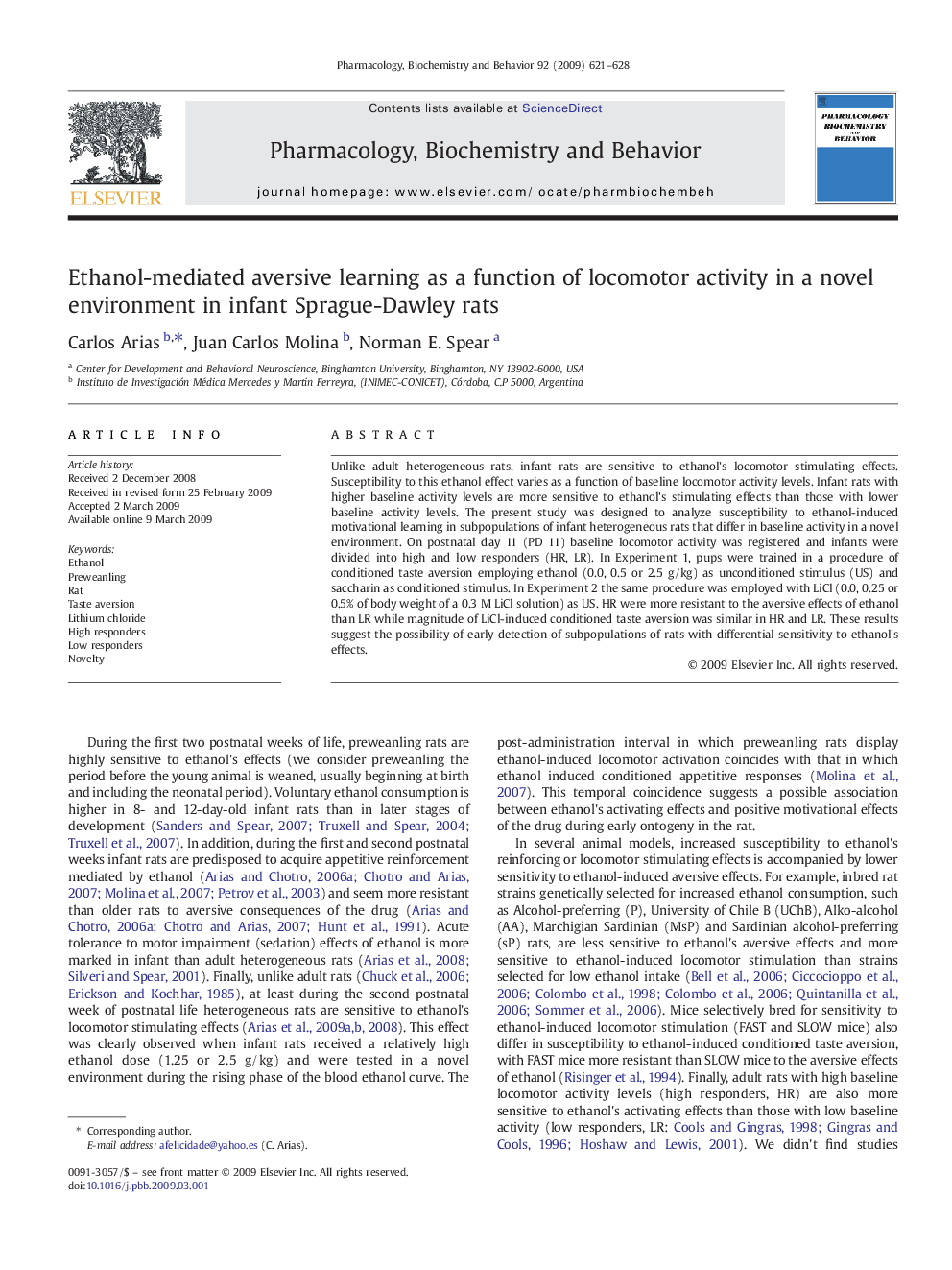| Article ID | Journal | Published Year | Pages | File Type |
|---|---|---|---|---|
| 2013686 | Pharmacology Biochemistry and Behavior | 2009 | 8 Pages |
Unlike adult heterogeneous rats, infant rats are sensitive to ethanol's locomotor stimulating effects. Susceptibility to this ethanol effect varies as a function of baseline locomotor activity levels. Infant rats with higher baseline activity levels are more sensitive to ethanol's stimulating effects than those with lower baseline activity levels. The present study was designed to analyze susceptibility to ethanol-induced motivational learning in subpopulations of infant heterogeneous rats that differ in baseline activity in a novel environment. On postnatal day 11 (PD 11) baseline locomotor activity was registered and infants were divided into high and low responders (HR, LR). In Experiment 1, pups were trained in a procedure of conditioned taste aversion employing ethanol (0.0, 0.5 or 2.5 g/kg) as unconditioned stimulus (US) and saccharin as conditioned stimulus. In Experiment 2 the same procedure was employed with LiCl (0.0, 0.25 or 0.5% of body weight of a 0.3 M LiCl solution) as US. HR were more resistant to the aversive effects of ethanol than LR while magnitude of LiCl-induced conditioned taste aversion was similar in HR and LR. These results suggest the possibility of early detection of subpopulations of rats with differential sensitivity to ethanol's effects.
